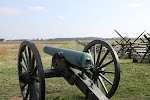A small pistol reposes in a display case in Ford’s Theatre in Washington, D.C. A sign identifies it as the weapon used by John Wilkes Booth to assassinate President Abraham Lincoln. But is it the gun used to kill Lincoln or a clever fake planted during a burglary in the 1960s?
According to one source, the murder weapon was stolen from Ford’s Theatre one hundred years after Lincoln’s death. The stunning allegation arose in 1997 during the adjudication of a New England estate. Suzanne Kelley, the National Park Service site manager for Ford’s Theatre, said a man cleaning out his deceased mother’s home found some suspected stolen items. The man called police, believing his brother, now serving time in prison, secreted the valuables in the house. The incarcerated son was a member of a burglary ring that operated in New York and Massachusetts between the late 1960s and the early 1980s.















